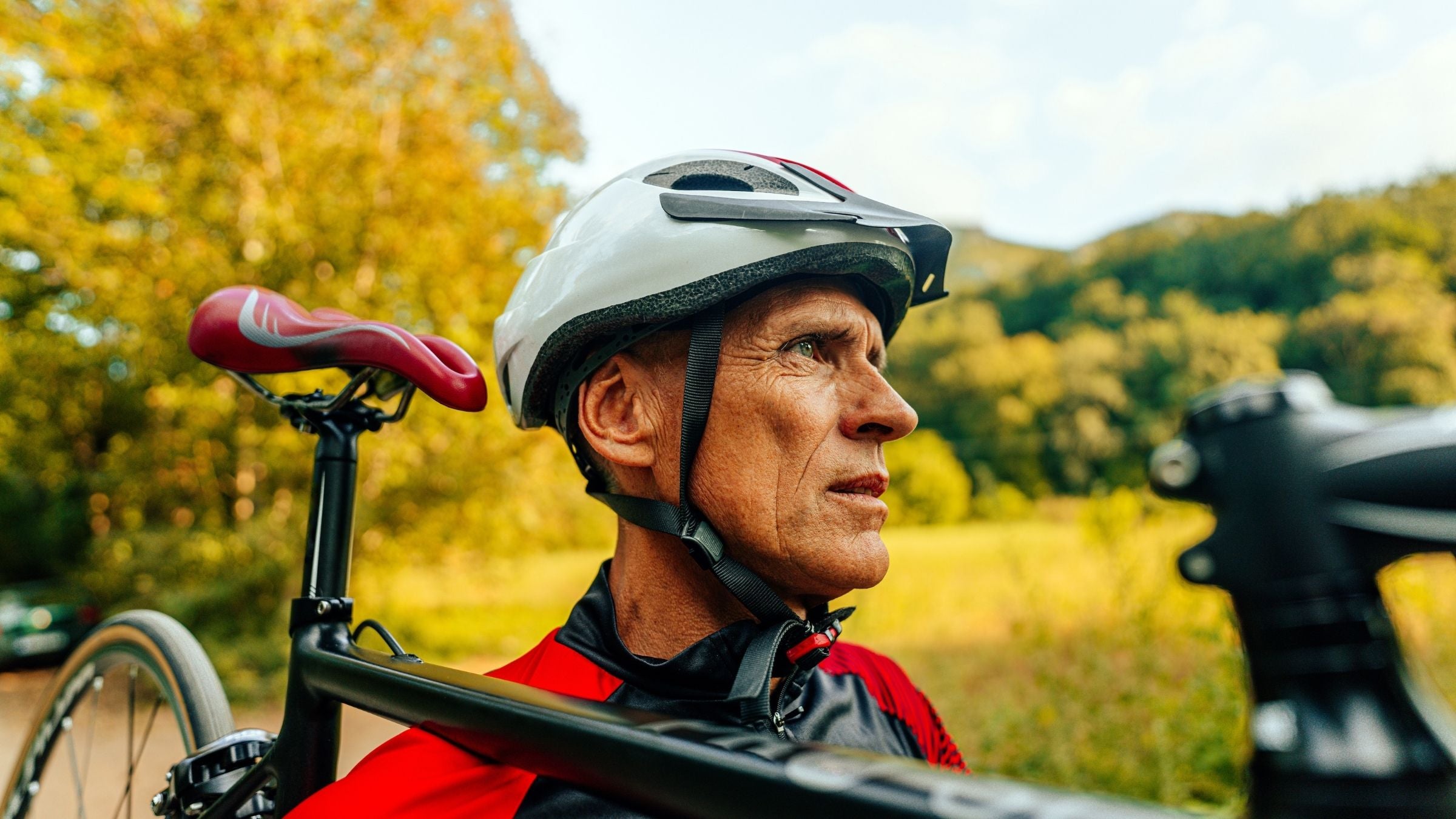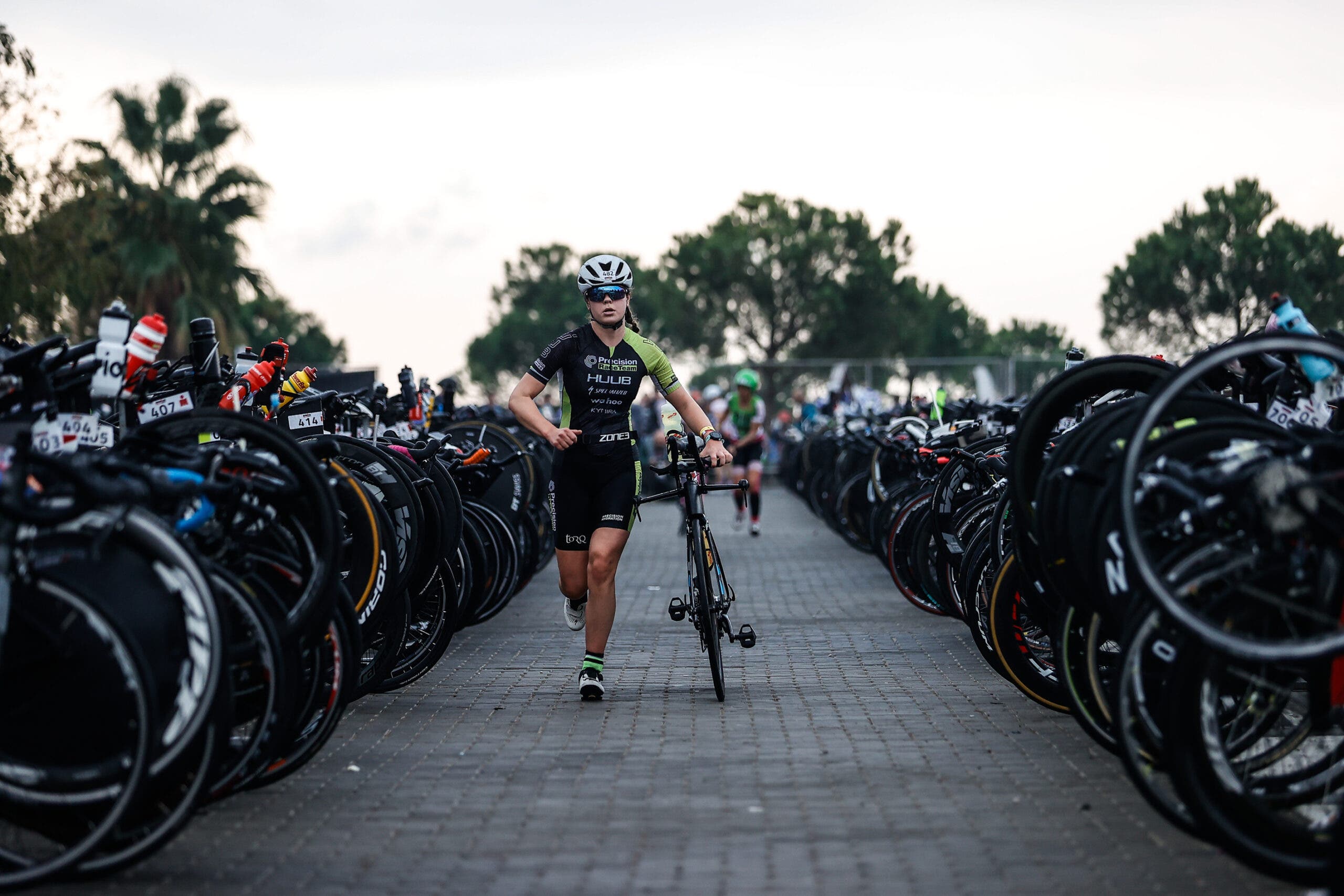You Are Not Your Gear

(Photo: Getty Images)
Who doesn’t love poring over a triathlon gear guide at the beginning of the season? Who doesn’t get excited when they get to try out a new gadget? Whose heart doesn’t skip a beat when a new piece of equipment takes their training to the next level? In a sport that can require an extremely long list of equipment, going a bit “gear crazy” is normal. It’s not only expected but can be part of the fun. Yet for all the excitement, there can be a darker side to focusing too much on gear.
We can see it in our training partner who seems to answer every disappointing race with an upgrade to his bike. We can see it in our friend who felt like she couldn’t show up to race without an aero helmet. We can see it in ourselves when we think we’ll never be truly great, simply because we can’t afford the right bike. Yes, there are certain basic things a triathlete needs, and it’s also true that some gear upgrades can make an athlete more comfortable, more efficient, or even faster. But some athletes also use gear to compensate for something else that feels uncomfortable, such as insecurities about athletic ability, social and financial status, or even age. While it may hurt to recognize this tendency in your own triathlon pursuits, there is a way to gain perspective. But first, we need to know how we got here.
What’s really going on here?
There are many reasons why athletes use gear purchases to compensate for uncomfortable feelings, and this behavior is more common than we’d like to admit. Research shows that athletes may use material purchases to prove that they belong to a group or even to prove that they have more status than others in that group. For example, in this case, newer triathletes might be susceptible to buying overly expensive or superfluous items as they hope it will help them be accepted as part of the community. One study that looked at the personality characteristics of endurance athletes also found that some of us use the financial investment as both motivation to train and as a way to convey our success to others. Other research shows that becoming obsessed with possessions, for instance bicycles, is common in those who exhibit low self-esteem, loneliness, and a need to make up for a deficit in social ability. This concept isn’t just relegated to triathlon, of course, and we’re likely to see many examples of people hoping that their possessions make them more likable or admirable.
It’s certainly not a problem to gain a little mood boost from a purchase or to feel extra motivated by a new piece of equipment. However, the focus on gear becomes problematic when we allow it to derail our training, mood, or relationship with the sport. Tracey Drews, an accomplished athlete and USA Cycling Level 2 coach with Carmichael Training Systems, says that athletes can really get in their heads about gear and the feelings of negativity can sabotage performance. “When an athlete becomes focused on gear as the limiting factor to their athletic ability, they exhibit a ‘have-not’ mentality that increases self-doubt and low self-esteem.” In these cases, the athlete has lost touch with their intrinsic love for the sport and instead, is focusing on extrinsic factors that they view as constraining. Research on intrinsic v. extrinsic motivation has found that this emphasis on external factors can lead to feeling a loss of control over performance—but there is a way to reverse this mindset.

Make gear decisions based on fact, not feeling
It’s impossible to discount the fact that certain pieces of gear can make a significant difference in performance, but athletes must have a realistic approach that incorporates budget, individual ability, and a healthy dose of science. Otherwise, we’re likely to make choices based on emotion, myth, or even aesthetics. For example, many athletes become convinced that a certain bike frame or set of wheels will take their performance to the next level, but in reality cyclists are more likely to gain an advantage through proper bike position than from a new frame—even if that’s not as much fun to buy. Aerodynamic analysis suggests an athlete would likely have more success by refitting the bike they already have and shaving their body hair than by dropping thousands of dollars on a fancy new bike.
Tracey Drews believes that hiring a well-informed coach is an excellent way to take the guesswork out of these choices. “Finding the right coach can help in navigating and prioritizing the most important and cost-effective changes to improve performance. They will also design a training plan to help measure and track those metrics necessary to see changes in performance.” A coach can also help athletes focus on other ancillary methods of improvement like dialing in nutrition, getting enough rest and recovery, monitoring mood, and sticking to a quality training plan. This kind of targeted approach can yield real results based on the individual athlete’s improvements, not on what they hoped would happen or what a marketing message promised.
RELATED: Triathlete’s Guide to Buying Gear
Have realistic expectations of your gear (and yourself)
Despite hiring a coach and learning about what gear benefits us and what doesn’t, some athletes may still feel lingering insecurity. In this case, the best course of action is to spend some time understanding where the feeling originates and address it directly, either on your own or perhaps with a qualified mental healthcare practitioner. A disc wheel purchase might be less about your race and more related to being ten years older than everyone else in your training group. Buying the most expensive speed suit could be a sign that you’re desperate to be seen as a top triathlete. Recognizing that age, status, and yes–money, only limit you if you let them. There is no replacement for quality training, nutrition, or rest. And remember: loving this sport is 100% free.
Jill Colangelo is a writer and researcher of mental health and ultra endurance sport. She has a BA and ALM in psychology and is a former triathlete and ultramarathoner.